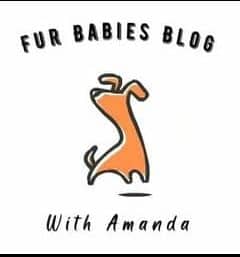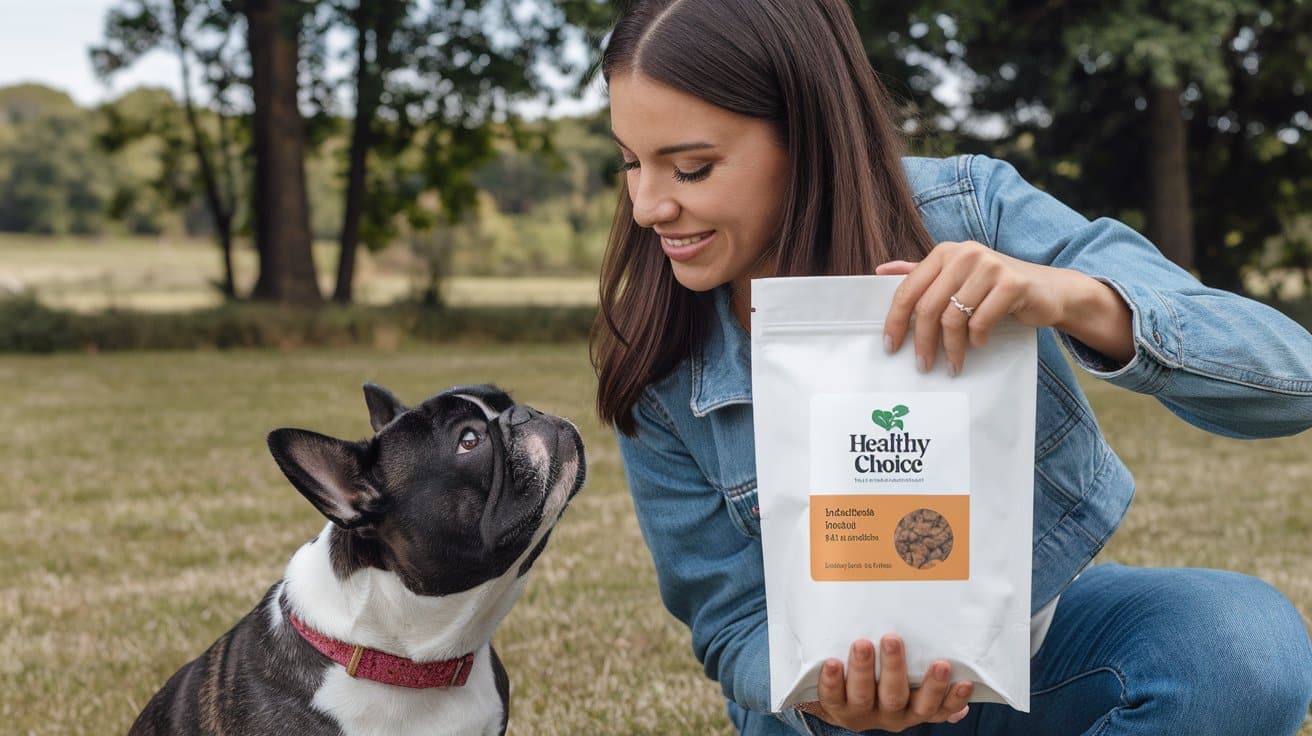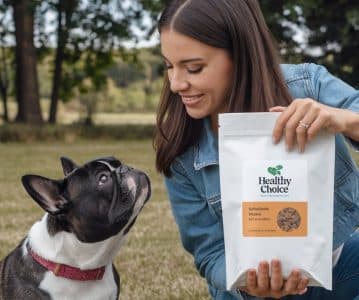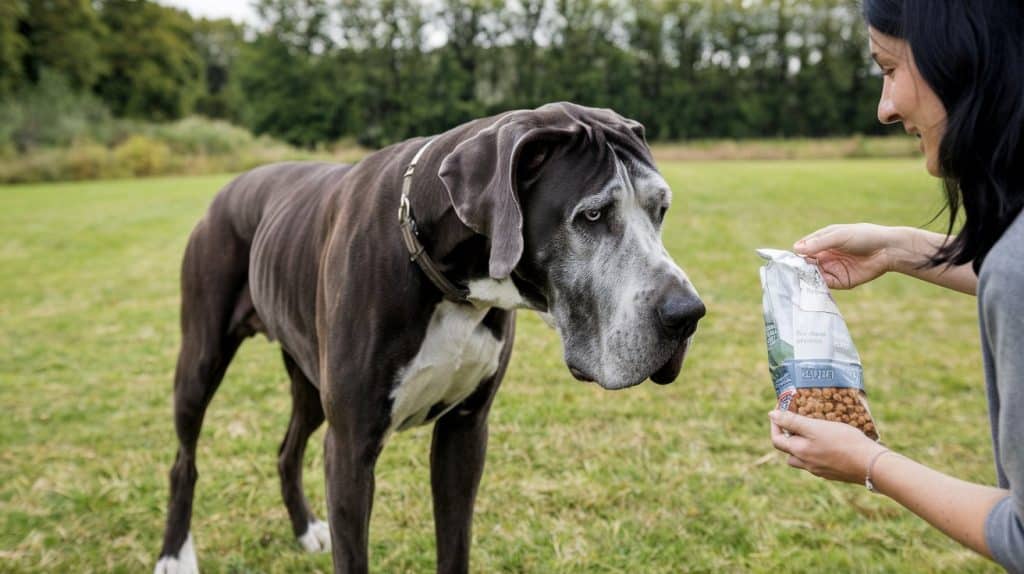Best Dog Food to Prevent Allergies
I've been there too – watching my furry friend scratch, lick, or experience digestive upset, feeling helpless and worried about their comfort and health. If you're going through the same, it's possible that your dog is suffering from a food allergy.
The good news is that choosing the right dog food can make a significant difference. In this article, I'll share my findings on how to select the best dog food to prevent allergies and offer some practical tips to help your pet feel better.
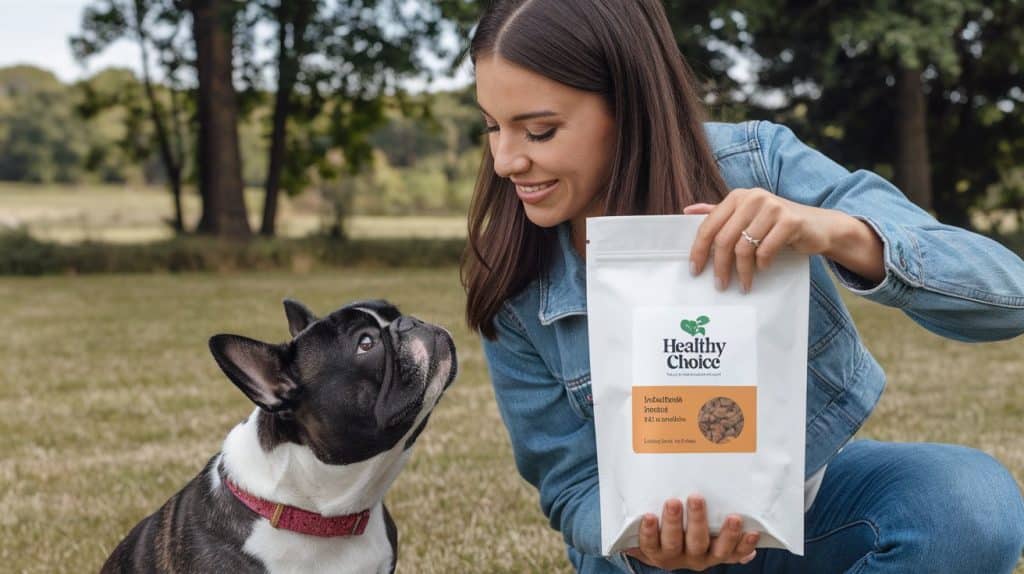
Key Takeaways:
- Limited Ingredient Diets can reduce the chances of triggering an allergic reaction in dogs.
- Hydrolyzed Proteins and Novel Proteins can be less likely to cause allergies in dogs.
- Grain-Free Options can be beneficial for dogs with grain sensitivities, and reading labels carefully can help prevent dog allergies.
While the underlying causes differ, dog food allergies and food intolerances often have similar clinical signs and are diagnosed similarly. Both are typically treated the same, too—with a change in diet, such as switching to a hydrolyzed protein diet.
Identifying Dog Allergies
The first step in addressing your dog's allergies is to identify the symptoms. It's vital to recognize the signs of an allergic reaction to provide your dog with the necessary relief.
Common Symptoms
Around 10% of dogs suffer from food allergies, and the symptoms can vary from mild to severe. Keep an eye out for excessive scratching, licking, or chewing, as well as digestive issues like diarrhea, vomiting, or gas.
Common Allergens
About 70% of dogs are allergic to proteins, such as beef, chicken, or dairy, while 30% react to grains like wheat, corn, or soy. It's crucial to identify the specific allergen causing your dog's discomfort.
Plus, it's not just about the type of protein or grain; the quality of the ingredients also plays a significant role. Look for dog foods that use high-quality, novel protein sources and whole grains to minimize the risk of an allergic reaction. If you're unsure, consult with your veterinarian for personalized advice.
Choosing the Right Dog Food
One of the most critical steps in preventing dog allergies is selecting the right food for your pet. With so many options available, it can be overwhelming, but by understanding what to look for, you can make an informed decision that benefits your dog's health.
Limited Ingredient Diets
Below the surface of complex dog food formulas lies a simple solution: limited ingredient diets. By limiting the number of ingredients, you're minimizing the risk of exposure to potential allergens.
Hydrolyzed Proteins and Novel Proteins
Any dog owner who's dealt with allergies knows that proteins can be a significant culprit. Hydrolyzed proteins and novel proteins offer a solution. Hydrolyzed proteins are broken down into smaller particles, making them less likely to cause allergies, while novel proteins introduce new protein sources that might not provoke a reaction.
Hydrolyzed proteins, for instance, are proteins that have been broken down into smaller particles, making them less likely to trigger an immune response. This process reduces the protein's molecular weight, rendering it less reactive.
Novel proteins, on the other hand, introduce new protein sources that your dog may not have encountered before, reducing the likelihood of an allergic reaction. By incorporating these protein sources into your dog's diet, you can help prevent allergies and promote overall health.
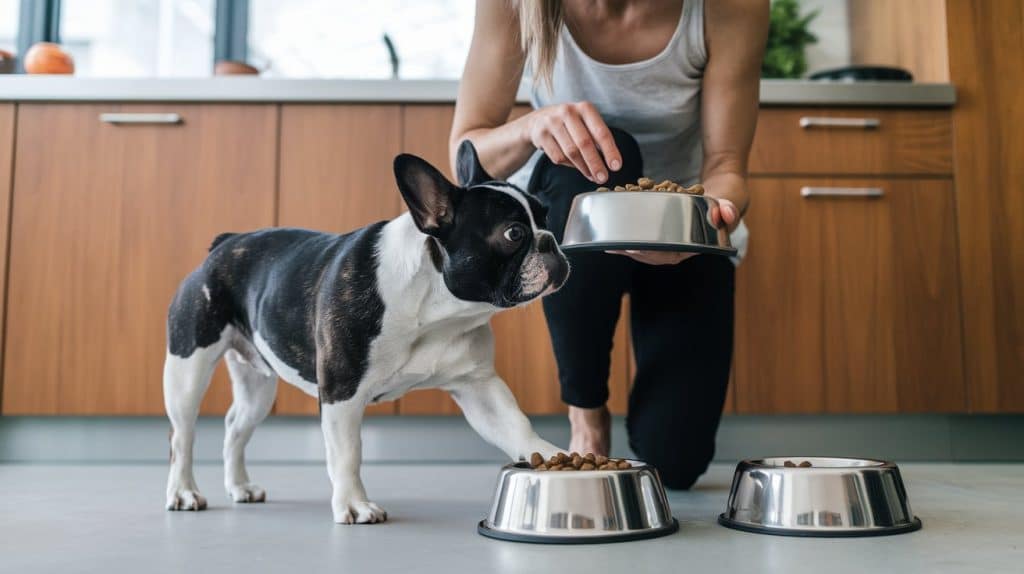
Grain-Free Options for Dogs
Once again, I want to emphasize the importance of considering your dog's individual needs when selecting a food to prevent allergies. For dogs with grain sensitivities, grain-free diets can be a game-changer.
Benefits of Grain-Free Diets
Grain-free diets can be incredibly beneficial for dogs, as they eliminate common allergens like wheat, corn, and soy. By removing these grains, you may see improvements in your dog's skin health, digestive system, and overall comfort.
Potential Drawbacks
About 10 years ago, the FDA issued a warning about a potential link between grain-free diets and canine dilated cardiomyopathy (DCM). While the exact cause is still unknown, it's crucial to discuss this risk with your veterinarian.
Even if you decide to opt for a grain-free diet, it's crucial to ensure your dog is getting all the necessary nutrients. Look for high-quality, balanced formulas that use novel sources of carbohydrates, such as sweet potatoes or green peas, instead of grains.
Tips for Preventing Dog Allergies
Keep your furry friend safe from allergies by following these simple tips. Not only will the right dog food make a difference, but also being mindful of other factors can help prevent allergic reactions.
Reading Labels Carefully
Below the flashy packaging, it's necessary to scrutinize the ingredient list. Look out for common allergens like beef, dairy, or soy, and opt for dog food that avoids these ingredients. Your dog's health is worth the extra few minutes of label-reading.
Limiting Table Scraps and Environmental Factors
Limiting the amount of human food your dog consumes is crucial. Table scraps can be harmful and trigger allergies. Instead, stick to a high-quality dog food that meets your dog's nutritional needs. Also, consider environmental factors that can contribute to allergies, such as:
- Pollen, dust, and mold, which can exacerbate skin issues
- Regular cleaning and dusting to reduce exposure to allergens
Any small change you make can have a significant impact on your dog's comfort and health.
Understanding the importance of limiting table scraps and environmental factors is key to preventing dog allergies. By being mindful of these factors, you can create a safer and healthier environment for your furry friend. Consider the following:
- Avoiding strong chemicals or cleaning products that can irritate your dog's skin
- Regularly washing your dog's bedding and toys to reduce exposure to allergens
Any small step you take can make a significant difference in your dog's life.
The Importance of Regular Grooming
Unlike many pet owners, I've learned that regular grooming is necessary for more than just keeping my dog looking clean and tidy. It plays a significant role in preventing allergies by removing allergens from their fur and skin.
Removing Allergens from Fur and Skin
Above all, regular grooming helps to remove allergens like pollen, dust, and mold from my dog's fur and skin, reducing the risk of allergic reactions. By doing so, I'm taking a proactive approach to preventing allergies and keeping my dog comfortable.

Reducing Allergy Symptoms
A necessary part of preventing allergies is reducing symptoms like itching, scratching, and digestive issues. Regular grooming helps to achieve this by removing allergens and distributing natural oils throughout my dog's coat, promoting healthy skin and a shiny coat.
The frequency and quality of grooming sessions can make a significant difference in reducing allergy symptoms. I aim to brush my dog at least twice a week, using a gentle brush that's suitable for their coat type. T
his not only removes allergens but also helps to reduce shedding and prevent matting. By incorporating regular grooming into my dog's routine, I'm taking a holistic approach to preventing allergies and promoting overall health and well-being.
Managing Environmental Allergens
To effectively manage your dog's allergies, it's necessary to consider the environment they live in. Environmental allergens like pollen, dust, and mold can exacerbate symptoms and make life uncomfortable for your pet.
Pollen, Dust, and Mold
Any exposure to these allergens can trigger a reaction in your dog. Pollen from trees, grasses, and weeds can cause skin issues, while dust mites and mold can lead to respiratory problems.
Creating an Allergy-Friendly Environment
About 70% of households have detectable levels of dust mites, which can trigger allergies in dogs. By taking simple steps like using HEPA air purifiers, washing your dog's bedding regularly, and vacuuming frequently, you can create a more comfortable environment for your pet.
Considering the impact of environmental allergens on your dog's health, it's crucial to take proactive measures to minimize exposure.
Additionally, consider alternative solutions like acupuncture or herbal remedies to complement your dog's diet and environmental changes.
Final Words
With these considerations in mind, I'm confident that you'll find the best dog food to prevent allergies for your furry friend. By choosing a high-quality food that addresses your dog's specific needs, you can help alleviate uncomfortable symptoms and promote overall health.
If you're still unsure, consult with your veterinarian for personalized guidance. With patience and persistence, you can help your dog thrive and live a happy, healthy life.
People also ask…..
Q: What are the common signs of dog allergies?
A: If your dog is scratching, licking, or experiencing digestive issues like diarrhea or vomiting, it could be a sign of a food allergy. These symptoms can be super frustrating, but don't worry, we're about to get to the bottom of it!
Q: How do I choose the right dog food to prevent allergies?
A: When dicking out a dog food, look for options with limited ingredients, hydrolyzed proteins, novel proteins, or grain-free formulas. These can help reduce the risk of triggering an allergic reaction. And, of course, always consult with your vet for personalized advice!
Q: Are there any other tips to help prevent dog allergies?
A: Absolutely! Be sure to read labels carefully, avoid table scraps, and keep your dog's environment clean with regular grooming. Oh, and don't forget to consider environmental factors like pollen, dust, and mold that can contribute to allergies.
